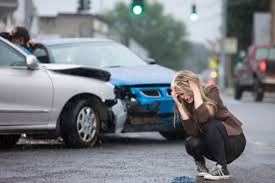Estate Owns a Car? Be Careful!

When an individual passes away, assets held in such individual’s name (and with no named beneficiary) generally become assets of that individual’s estate. Assume the individual owns a car, dies and his child drives the car before someone is appointed as personal representative. Child causes a wreck. Is the estate liable? Like any good lawyer answer…it depends! A recent case, Depriest v. Greeson addresses this fact pattern.
Christian and his wife lived with Christian’s adult daughter (“Daughter”). Daughter occasionally drove Christian’s car with his consent. However, Christian never told Daughter that she could continue to drive the car if he died. After Christian’s death and prior to the appointment of the personal representative, Daughter drove Christian’s car. She came upon an accident, in which Depriest and his grandmother had already collided with a car going the wrong way killing the other driver. Daughter collided with Depriest’s disabled car allegedly causing further damage to Depreist.
Depreist initially sued Christian and then, upon finding he had died, sued his estate (the “Estate”). Daughter was dropped as a defendant in the case. Depriest argued that the car was an Estate asset and the named personal representative, Christian’s stepson (“Stepson”), knew about Daughter’s use and impliedly consented to such use. Therefore, Depreist argued that the Estate was vicariously liable for damages caused by the Daughter.
Christian made NO specific bequest of the car and his will split his assets between Daughter and Stepson. Stepson, who lived in South Carolina, took the title of the car to his Florida probate attorney. There was no communication between Stepson and Daughter regarding the car.
Letters of Administration were issued to Stepson 20 days AFTER the accident. While Florida law gives the personal representative the authority to control the assets of the estate, the statute does not impose a statutory duty on the nominated personal representative to act PRIOR to appointment. Depreist argued that Stepson had the right to control Christian’s car. The appellate court determined that Stepson had no such duty PRIOR to his appointment as personal representative and thus, the Estate was not liable to Depreist.
The appellate court correctly noted that Depriest’s argument could “subject nominated personal representatives to liability from which the Legislature intended to shield them in the period after a death and before issuance of letters of administration formally appointing them as personal representatives. The law does not impose such a duty on facts as those presented here.”
ADVICE: If an estate owns a car, then the car must be insured and, if possible, no one, except the personal representative, should drive the car. The car should only be driven as a necessity. Immediately retrieve the keys from all parties and store the car in a safe place. A car is usually the ‘riskiest” asset in an estate. Such assets should be distributed from the the estate as soon as possible to avoid liability to the estate.
WORD OF THE WEEK: The “tipsy coachman doctrine” provides that, if a trial court reaches the right result for the wrong reason, the trial court’s decision will be upheld if there is any basis which would support the judgment in the record. In Depriest, the lower court opined that the Estate was not liable to Depriest because the Estate did not hold title to the car. The appellate court, however, determined that “in a twinkling of an eye” (at Christian’s death), the car became an Estate asset. Thus, the “tipsy coachman doctrine” applied because the appellate court affirmed the trial court as to the result but not the reasoning.
GENEROSITY IS A KEY TO HAPPINESS …REACH OUT AND HELP SOMEONE TODAY! 😎

